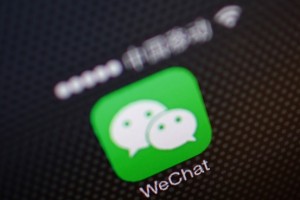7:24 pm HKT Aug 15, 2014 CULTURE
By Jason Q. Ng
Chinese authorities recently set off another round of hand-wringing over the state of public discourse with an announcement of new regulations on “instant messaging tools” that appear aimed at increasing state control over the dissemination of news on mobile chat applications like Tencent’s enormously popular WeChat TCEHY -0.53%. The new rules also spooked investors, causing shares in the Chinese tech behemoth to dip 3.5% in Hong Kong.
Tencent has said it would comply with the new rules, but that it would apply them only to accounts created in China. That may sound like good news for users of WeChat in overseas markets, which Tencent is eager to tap. The reality, however, is that content on WeChat (known as Weixin in Chinese) is already subject to an ambiguous censorship that appears intentionally designed to confuse its users, no matter where they may be located.
The new regulations directly address a popular WeChat feature that distinguishes it from other mobile chat apps: public accounts. Though WeChat started as a mobile chat application similar to WhatsApp, it sought to challenge China’s then-dominant social media platform, the microblogging site Weibo, by building a blog platform directly within the app. Starting in 2012, users could subscribe to those public accounts –set up by everyone from news organizations to activists to brands like Nike and Sprite – and forward the content their onto their contacts.

